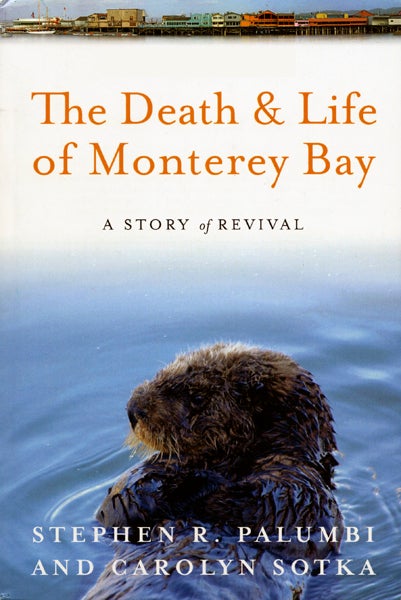|
April 12, 2011
Stanford marine biologist speaks at NY Public Library
Death and Life of Monterey Bay – how it went from trashed to treasured By Louis Bergeron

Learn how ordinary citizens can help save ecosystems – and stimulate the economy – when marine biologist Stephen Palumbi of Stanford University speaks Thursday, April 14, 6:30 p.m., at New York's Mid-Manhattan Public Library, 455 Fifth Avenue.
Palumbi, whose exploits have included working with National Geographic in a hotel-room DNA lab to prove Japan was selling illegal whale meat, will discuss his book, The Death and Life of Monterey Bay: A Story of Revival.
It’s a tale of how a few hardy people transformed Monterey Bay from its "era of ill health" portrayed in John Steinbeck's Cannery Row – when the bay was a cesspool of cannery waste – to the vibrantly healthy ecosystem of today.
The book offers a roadmap for the recovery of damaged ecosystems. Palumbi, director of Stanford’s Hopkins Marine Station, will discuss ways that ordinary citizens can make a difference.
You’ll hear about Julia Platt, who grew so frustrated with the canneries' pollution that in 1931 she ran for mayor of the little seaside town of Pacific Grove, won, and proceeded to talk the state Legislature into giving her the power to create California's first marine refuges along the town’s coast.
Palumbi will share the exploits of "Doc" Ricketts, the pioneering but eccentric marine biologist immortalized in Steinbeck’s novel Cannery Row. Ricketts taught Steinbeck enough ecology that he could write what Palumbi calls the “first great ecological novels,” such as The Grapes of Wrath.
Another key player in the Bay’s recovery was the sea otter, which Palumbi describes as "cute, fuzzy little things that are voracious carnivores,” once thought driven extinct by pelt hunters in the 1830s. Finally there is the Monterey Bay Aquarium, which he says “has revolutionized the economy of Monterey and made a healthy ecosystem actually more valuable than an 'eaten' ecosystem."
-30-
|